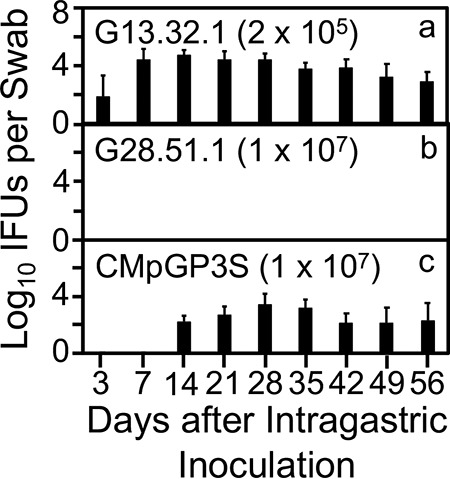FIG 6.

Comparing C. muridarum with or without mutations in chromosomal genes tc0668 and tc0237 or plasmid gene pgp3 for colonizing the gastrointestinal tracts of gastrin-deficient mice. C. muridarum without (G13.32.1) or with mutations in chromosomal genes tc0668 and tc0237 (G28.51.1) or plasmid gene pgp3 (CMpGP3S) was intragastrically inoculated into gastrin-deficient mice (n = 5 per group). On days 3 and 7 and weekly thereafter, after inoculation rectal swabs were taken for monitoring live chlamydial organism shedding. Note that gastrin deficiency rescued the plasmid mutant CMpGP3S but not the chromosomal mutant G28.51.1, allowing it to colonize the gut. P < 0.01 (for the area under curve in panel a versus that in panel b; Wilcoxon test).
